First Civilizations - Season 1
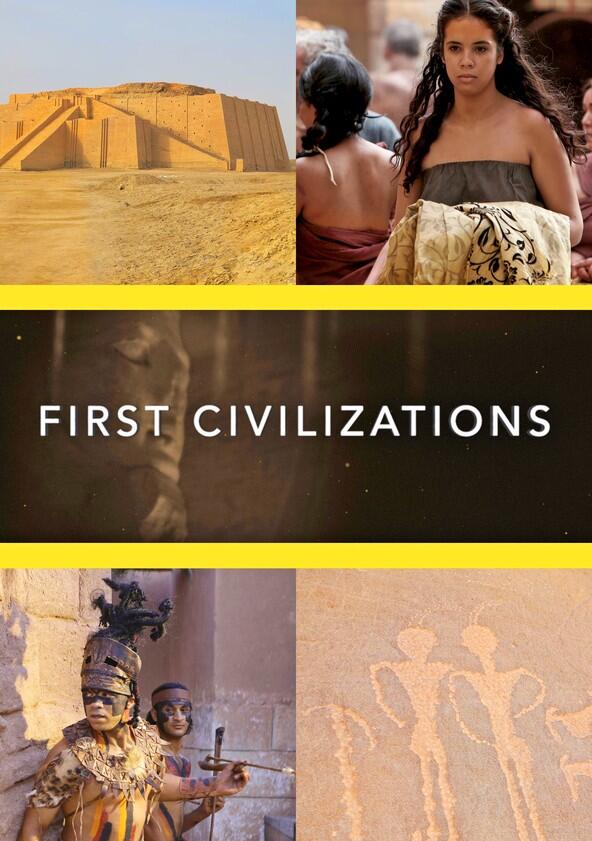
Season 1
Having lived as mobile foragers for 99 percent of our time on Earth, why did humans set out on the road to civilization? How did they create villages, towns, cities and states, and establish the blueprint for the modern world? This series identifies four cornerstones of civilization – war, religion, cities and trade – and explores each in the context of a different location. Criss-crossing the globe, camera crews travel to Mexico, Guatemala, Iraq, Turkey, Egypt, India, Pakistan, Oman, Morocco, France, Germany, Japan, the U.K. and the U.S. They record the latest archeological discoveries, test new theories and uncover original information.
Drama reconstructions and computer graphics are used to visualize the lost world of the first civilizations. In each episode, the ancient story is also complemented by a modern-day analog, with an expert interviewee connecting the dots between past and present. The idea is to show how our ancestors were motivated by the same impulses that persist today: the inevitability of war, a need for religion, the lure of the city, a love of trade. Their story is our story.

Episodes

War
Examine the process of "destructive creation" — the idea that fear, rivalry and conflict strengthen community bonds while stimulating an arms race of technological progress. The result is civilization. Ancient Mesoamerica exemplifies this development.

Religion
The secret to the stability and cohesion of Ancient Egypt was religion. When people share a core set of beliefs, they are more likely to identify as one. That was true for the first civilizations, it's just as true today.
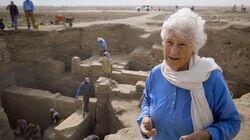
Cities
View the birthplace of civilization: the Middle East, site of the world's first villages, towns and cities, from the hills of Turkey to the plains of Iraq. They were crucibles of invention and innovation — turbo-charging the pace of progress.
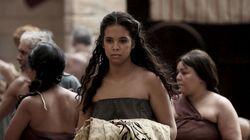
Trade
Examine an ancient civilization unlike any other, that of the Indus Valley. Rather than imposing order through war or religion, it relied on the free flow of trade. The exchange of goods promoted wealth, co-operation and trust.
Recently Updated Shows

The Daily Show
Hosted by a rotating cast of comedy greats, The Daily Show remains the go-to source for provocative satire, insightful interviews and an award-winning team of correspondents and contributors.

Irish Blood
Irish Blood focuses on Fiona, whose path in life is earmarked by her father, Declan, who seemingly abandoned her and her mother on her tenth birthday. After years of channelling anger toward him, to the benefit of her litigious clients, a message from her father sends her to Ireland. There she learns key truths about her father as well as a family that doesn't know she exists, and, moreover, that the story of abandonment that has shaped her entire life - was a lie. A lie intended to protect her and her mother from her father's shady business dealings. Fiona resolves to uncover the full truth about her father and reconnect with the parent she only thought she knew.
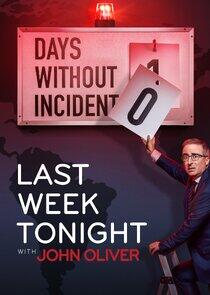
Last Week Tonight with John Oliver
On Last Week Tonight with John Oliver, John Oliver presents a satirical look at the week in news, politics and current events.

Your Friends & Neighbors
Coop is a recently divorced hedge fund manager who, after being fired, resorts to stealing from the wealthy residents in his tony upstate New York suburb in order to keep his family's lifestyle afloat. These petty crimes begin to reinvigorate him until he breaks into the wrong house at the wrong time.
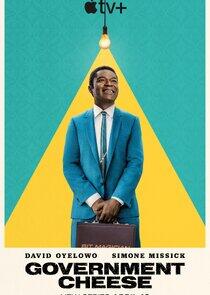
Government Cheese
Government Cheese is a surrealist family comedy set in 1969 San Fernando Valley that tells the story of the Chambers, a quirky family pursuing lofty and seemingly impossible dreams, beautifully unfettered by the realities of the world. When Hampton Chambers is released from prison, his long-awaited family reunion doesn't go quite as he'd planned. During his absence, Hampton's wife, Astoria, and sons, Einstein and Harrison, have formed an unconventional family unit, and Hampton's return spins their world into chaos.